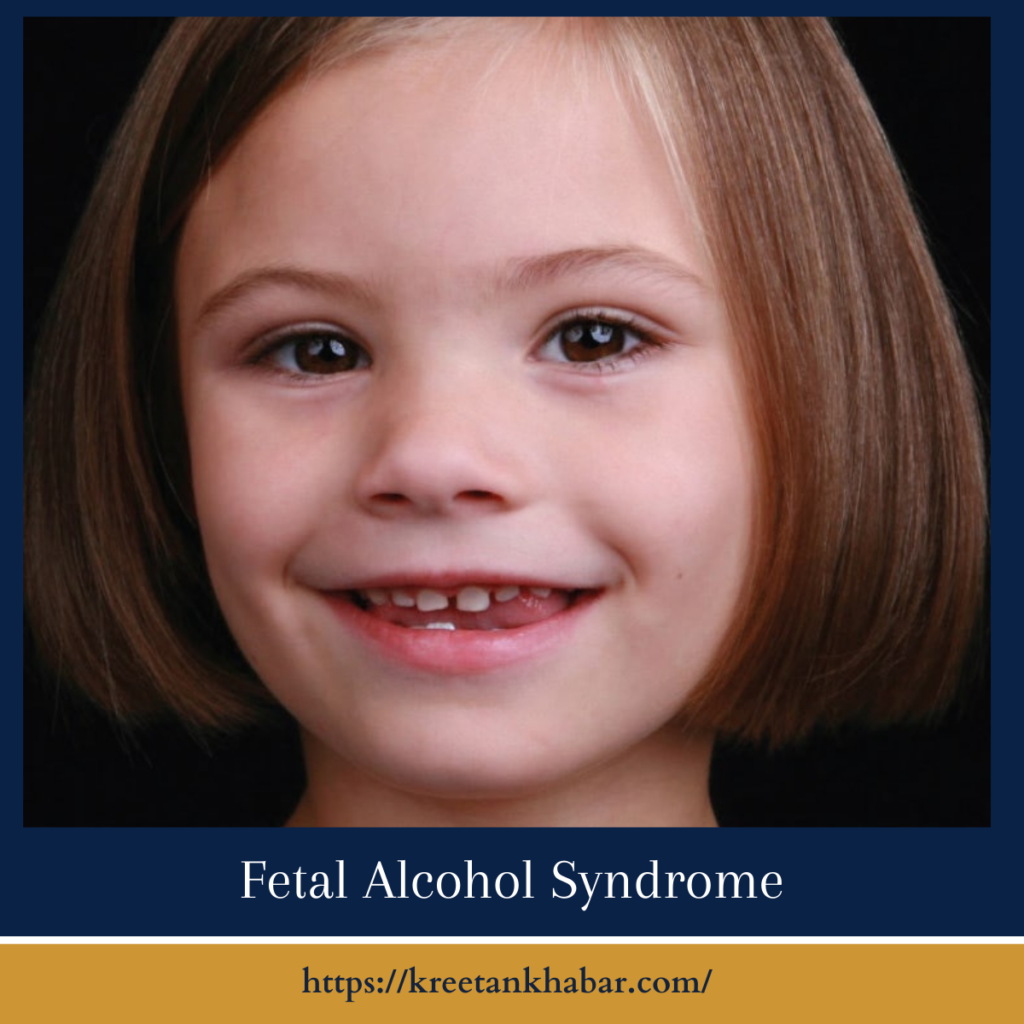Fetal Alcohol Syndrome: Navigating the Complexities of Prenatal Alcohol Exposure
Fetal Alcohol Syndrome (FAS) stands as a poignant testament to the profound influence of maternal behaviors on fetal development. Defined by a constellation of physical, cognitive, and behavioral abnormalities, FAS represents a significant public health concern with far-reaching implications. As we delve into the intricate web of factors contributing to FAS, we unravel the urgent need for awareness, prevention, and comprehensive support for affected individuals and families.

Fetal Alcohol Syndrome:
An Overview Fetal Alcohol Syndrome (FAS) is a serious, yet entirely preventable, condition resulting from prenatal exposure to alcohol. Characterized by a spectrum of physical, neurological, and behavioral impairments, Fetal Alcohol Syndrome represents the most severe manifestation of Fetal Alcohol Spectrum Disorders (FASD). While FAS is the most easily recognizable form of FASD, individuals may also present with partial FAS, alcohol-related birth defects, or alcohol-related neurodevelopmental disorder, each with its own unique features and challenges.
Understanding the Impact
The impact of Fetal Alcohol Syndrome extends far beyond physical appearance, encompassing a myriad of developmental, cognitive, and behavioral deficits. Physical features commonly associated with FAS include facial abnormalities such as a smooth philtrum, thin upper lip, and small eye openings, as well as growth deficiencies and organ abnormalities. However, the cognitive and behavioral effects of Fetal Alcohol Syndrome are often more insidious, ranging from intellectual disabilities and learning difficulties to attention deficits, impulsivity, and social-emotional challenges. These impairments not only compromise academic and occupational success but also predispose affected individuals to mental health issues, substance abuse, and involvement in the criminal justice system.
The Role of Prenatal Alcohol Exposure
Central to the development of Fetal Alcohol Syndrome is prenatal exposure to alcohol, which can disrupt fetal development at any stage of pregnancy. Alcohol crosses the placenta freely, exposing the developing fetus to its toxic effects and interfering with crucial processes such as cell proliferation, migration, and differentiation. The severity of FAS is influenced by various factors, including the timing, frequency, and quantity of alcohol consumption, as well as individual differences in metabolism and genetic susceptibility. Despite growing awareness of the risks associated with prenatal alcohol exposure, Fetal Alcohol Syndrome remains a prevalent and preventable cause of developmental disabilities worldwide.
Prevention and Intervention
Preventing Fetal Alcohol Syndrome requires a multifaceted approach encompassing education, advocacy, and policy initiatives aimed at reducing alcohol consumption during pregnancy. Efforts to raise awareness among women of childbearing age, healthcare providers, and the general public about the dangers of prenatal alcohol exposure are paramount. Additionally, comprehensive support services and interventions are essential for individuals affected by Fetal Alcohol Syndrome, encompassing early intervention programs, educational accommodations, behavioral therapies, and social services to address the complex needs of affected individuals and their families.
Conclusion
Fetal Alcohol Syndrome serves as a stark reminder of the profound impact of maternal behaviors on fetal development and the lifelong consequences of prenatal alcohol exposure. By understanding the complexities of FAS and its far-reaching implications, we can work collectively to prevent Fetal Alcohol Syndrome, support affected individuals and families, and advocate for policies and initiatives that promote healthy pregnancies and positive developmental outcomes. Through education, awareness, and compassionate care, we can strive to create a world where every child has the opportunity to thrive free from the preventable harms of FAS.
Read also : Exploring the Delightful Boost of the Green Tea Shot 2023